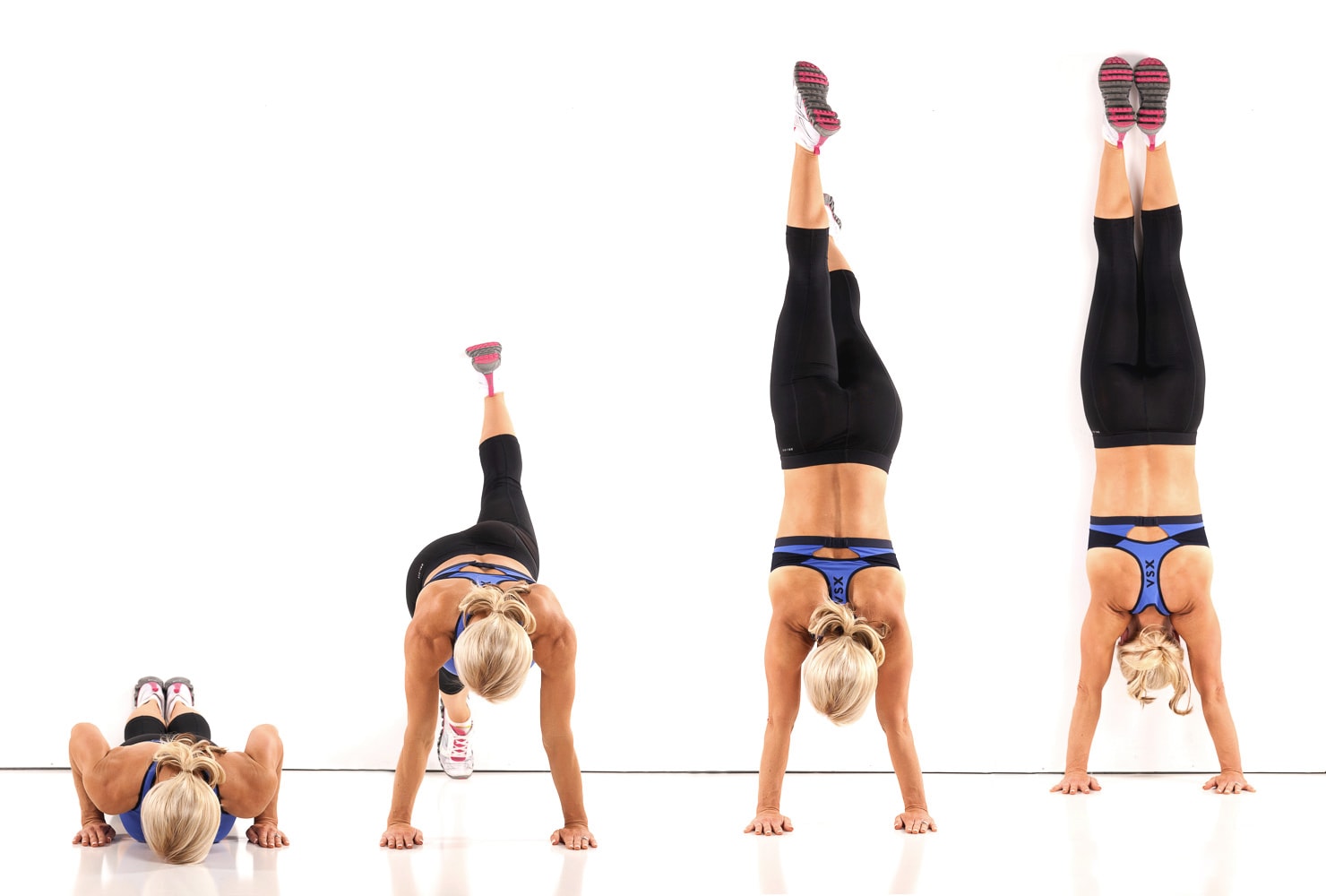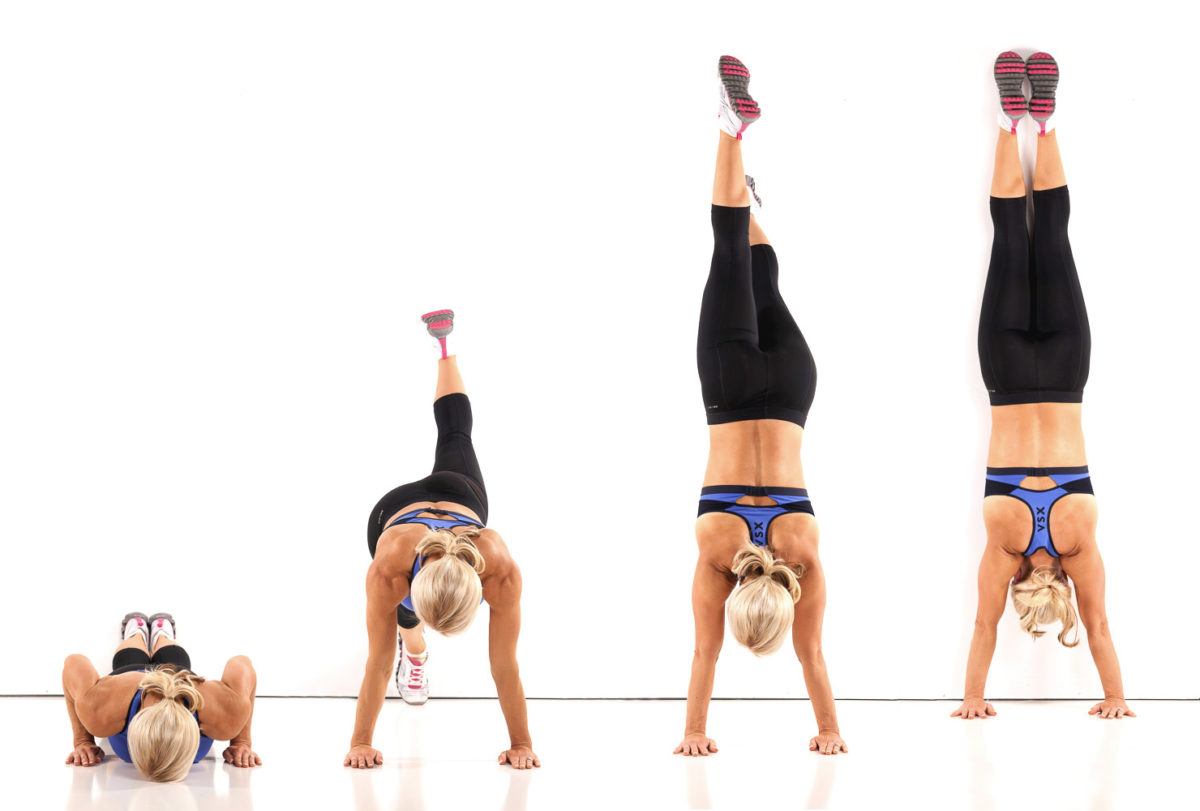
Handstand Wall Climbs demonstrated by IFBB Fitness Pro Julie Lohre
The Crossfit Wall Climb or Handstand Wall Walk is a full body movement that is often used as not only a strength and conditioning exercise, but also a progression for those individuals wanting to learn how to do a handstand. It develops many of the muscle groups and body awareness needed to properly and safely perform a hand stand.
Set Up:
– Start in the bottom of the push up position, with your feet against a wall
– Begin to push up as if you were doing a normal push up and at the same time begin to bring your feet up the wall walking “backwards” up the wall in small steps.
– As your feet move up, begin to move your hands back with small movements stepping your palms toward the wall one at a time.
– Finish the upward part of the movement with your belly touching the wall with your arms locked out
– Once you reach the apex of the handstand wall climb, you will then reverse the movement by inching your feet back down the wall and your hands forward away from the wall.

